بسم الله الرّحمن الرّحیم
The Esra News Agency:
The international congress "Allamah Sayyid Mohammad Hossein Tabatabaei (May Allah bless him)" was held today, 24th of Aban, 1402 (15 November 2023), coinciding with the forty-second anniversary of the passing of Allamah Tabatabaei (May Allah bless him).
In this international congress, the message of Grand Ayatollah Javadi Amoli was broadcasted.
Translator: AbdolQhadir Mojahid Ghaznavi
I seek refuge in Allah from the accursed Satan
In the name of Allah, the Most Gracious, the Most Merciful
Praise be to Allah, the Lord of all the worlds, and may Allah bless upon all the prophets, messengers, the guides and the guided Imams, and Fatimah Az-Zahra, the Mistress of the Women of the Worlds. We pledge allegiance to them and from their enemies dissociate ourselves to God.
We respectfully honor you; the esteemed elites and educated ones, great and honorable masters. We honor all dignitaries and scholars (authors) who have contributed scholarly articles or presentations to this gathering. We beseech from the Holy Divine Essence to bless all the scholars, jurists, and interpreters of divine knowledge around the banquet of the divine and the blessing-table of the Lord. May the pure soul of Allamah Tabatabaei (may Allah's blessings be upon him) be a guest among the Pure Progeny (The Prophet and His Household, peace be upon Him and Them), and may the Islamic society, especially the seminary and university, be blessed in the company of the table of the Quran and the Progeny, may make them become wise, knowledgeable in order to save today's world from scientific ignorance and practical folly!
Our religious leaders, in general, and especially Allamah Tabatabaei (may Allah be pleased with them), have entrusted themselves to the Quran and the Progeny, both in acquiring the principles of knowledge and in their approach to learning and benefiting from knowledge. The divine leaders have well explained these three principles. The first principle is the necessity of acquiring knowledge, as stated in the narrations:
«طَلَبُ الْعِلْمِ فَرِيضَةٌ»
"Seeking knowledge is an obligation." (1) Becoming knowledgeable is an obligation, not Nafilah (Recommended and optional rituals); it is a necessity for life, not a trivial and marginal matter. This is the first principle (Usul).
The second principle is that it is true that acquiring knowledge is good and all sciences are good, as are their branches (Furu, Ancillaries), but more important than the branches are the principles. More important than fruits is planting the tree of knowledge. Therefore, the Imams (peace be upon them) said it is true that "Seeking knowledge is an obligation," but the way to do it is that we explain these general principles and primary fundamentals, then you make efforts to derive branches from these principles, deduct branches from these principles, and appoint these principles as supervisors and guides for those branches so that under the leadership of principles and fundamentals, the nation which is named as branches (Furu) becomes fruitful.
Therefore, the second principle is ijtihad (independent reasoning) alongside the first principle, which is the obligation of seeking knowledge. The first principle is that "seeking knowledge is an obligation," and the second principle is that
«عَلَيْنَا إِلْقَاءُ الْأُصُولِ وَ عَلَيْكُمُ التَّفْرِيع»
"We must present the principles, and it is your responsibility to deduce the branches." (2) The necessity of ijtihad has been narrated from the blessed existence of Imam Sadiq (peace and blessings of Allah be upon him) and also Bazanti (Ahmad ibn Muhammad ibn Abi Nasr al-Bazanti (152-221 AH)) narrated from the blessed existence of Imam Reza (peace and blessings of Allah be upon him), stating that the seminary and university must nurture Mujtahid (Great religious thinkers). Acquiring the branches is essential, but not sufficient; benefiting from the knowledge of the East and West is beneficial, but not sufficient. It was stated that merely knowing the branches is not enough; rather, two tasks remain: first, in relation to the principle of foundations, that you must learn the rule, and second, supervision of the branches in relation to the principles, and the submission of the branches to those principles! This must be learned in order to place a branch under a specific principle and how to cultivate branches under certain principles and rules. It was stated: "We must present the principles, and it is your responsibility to deduce the branches." This is the second principle.
The third principle is that if knowledge, as it is knowledge, does not reach aql (Nous, Intellectus, Intellect), it not only becomes ineffective but also harmful because knowledge is a lamp; if this lamp under the leadership of practical aql (Nous, Intellectus, Intellect), does not reach to light, it does not show the path; rather it shows theft, transgression, injustice, and aggression. A lamp that seeks to show the path must be placed under the guidance, training, and presentation of practical Nous. Therefore, the Imams (peace be upon them) presented this third directive in a well-organized manner for the management of seminaries and universities and stated:
«التَّعَلُّمُ بِالْعَقْلِ يُعْتَقَدُ».
"Learning by intellect will be turned into belief." (3) If the seminary or university becomes knowledgeable, this is only half of the journey. For knowledge to become effective in nurturing both the scholar themselves and presenting the path to society and guiding the community to its destination, there is no way unless from the workshop of theoretical aql/Nous and thought it reaches to the sanctuary of practical aql and motivation, so to be trained, be one-sided, show only the path, not deviation or wrong paths! The Imam stated: "Learning by intellect will be turned into belief."
Allamah Tabatabaei (may Allah be pleased with him) once in a meeting in Qom where our dear teacher, the late Ayatollah Hakim Elahi Qomshaei (may Allah be pleased with him), was also present, stated that the most important part of my life passed with the narrations of Ahl al-Bayt. He said: "I have read almost more than half of Bihar al-Anwar," then he said "And no pride!" He continued by saying that for many years he had been intimate with this book. Through familiarity and intimacy with the narrations of the Ahl al-Bayt (peace be upon them), Allamah’s pure heart was nurtured in such a way that, with a wealth of narrations, he found his way to the sanctuary of the Holy Quran and presented a commentary that has benefited greatly from narrations and the guidance of the narrations blossomed (his) intellect. He said we have seen many narrations of Bihar al-Anwar.
Through familiarity and intimacy with these narrations, Allamah Tabatabaei learned, how to study, how to become knowledgeable, and how to teach and compile (his works). These are the principles that the Imams stated: first: "Seeking knowledge is an obligation," then they said to learn the branches. It is possible for someone to gain fame as a professor in a seminary or university but still be an imitator, because he has said others' words; if there is a new word (which the imitator says) is borrowed from another, if there is a deep word (he says) is borrowed from someone else’s book, if there is a scientific subtlety, that is taken from other’s book. One who does not spring from within himself is an imitator even if he learns abundant sciences. This is a reservoir, not a spring; it has taken (the water in it) from elsewhere; If he has not sprung from within himself; it would not suffice. It is stated that surely it must be a spring; a reservoir cannot suffice, because when its water runs out, it's all over! But a spring that springs from within itself matters; it was stated: Be "The Springs of knowledge".
"In order for a person to be a spiring (source), not a reservoir, and for his cultivation to always be alive and fruitful, there is no solution other than learning the principles (one) and take the principles from the theoretical workshops, which are the seminary and the university, which are no more than a mere workshop, in other words, take the principles from the theoretical workshop of thoughtful work, to the practical aql (Nous, intellect) (two). The practical aql was introduced by the Imam, peace be upon him, in this way:
«مَا عُبِدَ بِهِ الرَّحْمَان وَ اکْتُسِبَ بِهِ الْجنان»
“Intellect is that by which the Merciful God is worshipped, and by which Heaven is attained.” (4) A person must do something through practical intellect that ties the product of the seminary and the university which is a loan borrowed from reservoir, to his very soul, so that his soul transforms from a reservoir to a source. When it ties to the soul, then it becomes a belief.
It is essential to express this point: It is possible for a person to know something 100%, have no scientific doubt, and have 100% certainty; but does not act (upon what he knows), because theoretical intellect has nothing to do with action. Theoretical intellect and practical intellect are two completely separate systems. If the spirit was strong and a real human, -a human means a human! – and he trained and adjusted these powers, if the powers were trained, then each (of the theoretical and practical intellects) helps the other. The work of theoretical intellect is only thought; it becomes a spring and springs on its own, (but still it is the the) thought which springs, not the motivation (practical intellect by which a person acts).
Something might be 100% certain to him and he acts accordingly, because the decision, determination, and will are related to practical intellect. But, if his practical intellect is ruined, he is like Pharaoh, to whom the blessed existence of Moses spoke:
﴿لَقَدْ عَلِمْتَ مَا أَنزَلَ هؤُلاءِ إِلاّ رَبُّ السَّماوَاتِ وَ الأرْضِ بَصَائِرَ﴾
“Certainly, you have come to know that these have been sent by the Lord of the heavens and the earth as insight.” (5) O Pharaoh, you have been 100% certain that the truth is with me. It is possible for someone to be 100% certain who is right and at the same not act (upon his knowledge), because theoretical intellect which means the seminary and the university wherein (theoretical) knowledge is, wherein understanding is, wherein reasoning is, wherein thought is, there is no place for insight and action. Practical intellect is a completely separate system; this system ties the product of theoretical intellect to its soul (essence).
We have a contract (aqd) and a conviction (Aqidah). The contract is related to theoretical intellect that establishes a relationship between the predicate and the subject, saying that this subject is the subject of this predicate and this predicate is the predicate of this subject; this is a contract. But belief is that it ties itself to the soul (j’an) which is named as belief and faith. This luminous statement belongs to Imam Ali (peace be upon him), who said: 'Learning through intellect turns into belief'; there is a practical intellect that ties up, it restrains the fractious and disobedient thought of a knowledgeable person, it restrains that cantankerous and rebellious egoism, it restrains his hands and feet, it binds and ties up. This intellect does not allow this knowledge to be unrestrained and still remain a reservoir; rather, it ties it to soul/essence, it turns the contract into belief which becomes the second assertion. The second assertion means that I believed; the subject is the person, the predicate is that belief, (now) he says I believe, I have a belief.
This belief safeguards man, for it binds, educates and nurtures him. It prevents him from being cantankerous and transforms him from being a mere reservoir to a gushing spring, making him “a source of wisdom” (6). The Imams ordered this third task, stating that mere attendance at the seminary and university is not sufficient. Night prayers, pre-dawn prayers, mosque attendance, continuous remembrance of God, moral training, heartfelt presence (being conscious), self-accounting, and numerous other actions that our ethical leaders have deemed necessary. They stated: 'Through intellect,' which binds “belief is established”. This means that if knowledge is to become belief, that scientific bond, if it is to lead to practical belief, it is the work of practical intellect (not theoretical intellect). They stated: 'Learning with intellect leads to belief'; it becomes tied up, it becomes belief.
Allamah Tabatabaei perfectly performed this third task; that is, he tied what he understood to his essence/soul. Of course, there is an interaction between the soul and these powers. Whatever powers to be cultivated are under the leadership of that soul. If the soul is complete, these powers, in a fluent, diligent, easy, voluntary, and enthusiastic manner, obey; otherwise, there is always a struggle between that soul and these powers. Just as there is sometimes a struggle between the two major powers (theoretical and practical intellects), sometimes there is a struggle between the soul and one power. If a person succeeds in training these powers in this moderate or greater struggle (jihad), only then his struggle in the path of God will be complete.
As far as these three tasks are not completed, no one will be like Allamah Tabatabaei. If it occurred as aforementioned, from then on, it is like a gushing spring that gushes out. You will see in the narrations there are abundant blessings; however, these narrations are sometimes in the form of principles and sometimes in the form of branches; sometimes they create reservoirs and sometimes springs. In the Quran and also in the narrations, they sometimes establish evidence, such as
﴿لَوْ كَانَ فِيهِمَا آلِهَةٌ إِلاّ اللَّهُ لَفَسَدَتَا﴾
"Had there been gods apart from Allah, both (the heavens and the earth) would have been corrupted” (7) There are no scarcity of such exceptional analogies in the Quran.; sometimes they express the golden mean (middle ground), they express the principles.
In the luminous expressions of Imam Ali (peace be upon him), there are many such principles. In one of his sermons, which a part of it is included in Nahj al-Balaghah but a notable part of it is not included in Nahj al-Balaghah, the blessed being of Imam Ali repeatedly mentions that God is infinite. Because He is infinite and eternal, there is no place for beginning or end; because He is infinite, there is no place for up or down. He said that His eternity removed day and night, because He is eternal and has no before or after; because He is eternal, He has no beginning or end; because He is eternal, He has no precedence or succession. He said: «مَنْ نَهَّاهُ» 'Whoever limits Him,' meaning «قال بنهايته» 'says He is finite,' has not recognized God. The luminous interpretation of Imam Ali, peace be upon him, in that sermon is that 'whoever limits Him,' meaning that whoever 'considers a limit for the Truth (God),' has not recognized God. Since God is eternal, with eternity, He abandoned before and after. There is no former in the domain of Truth nor is the latter. Since He is infinite, there is no place for precedence or succession in the sanctuary of the divine abode.
"The insistence of that sermon on the infinity of God revived both the Gnosticism (Erfan, Esoterism) and the Proof (Philosophy). It should be noted that the principle of "The One" is a precise principle, but this of those which its entry is good and its exit is correct. The principle that has entered is scientific and scholarly, but when the abundant problems overflowed, it quickly exited from many systems. Fakhr Razi says that if "The one from which only one emanates." is correct, you said that the First Emanation (Sadir Awal) is the first intellect, or for example, the blessed existence of the Prophet (peace and blessings of Allah be upon him and his progeny) is an emanation, then you said that the first emanation, for example, has six directions in it which from each direction something emanates, then you reached the eighth sphere. Well, the eighth sphere, its stars are not confined and limited, numerous directions must be in those sublime abstractions (immaterial beings) to produce these infinite stars.
These kinds of uncertainties even confused scholars such as Khajah Nasir al-Din al-Tusi. The point is that the principle of "The One," that divine unity, as understood by the Qur'an and narrations, first understood by the mystics, while it was not grasped by the philosophers. Later, with the efforts of mystics on one side, the philosophy of illumination on the other side, and the efforts of Sadr al-Muta'alliheen (may Allah be pleased with them all) on the third side, this unity was understood to be universal and comprehensive; this infinite unity, with one cry, fashions the first and the last and with one other cry, it collapses a world and with one cry, it creates a world:
﴿إِنْ كانَتْ إِلاَّ صَيْحَةً واحِدَةً﴾
"It was not but a single blast (cry)," (9) It is true that the One is the source of the One; but numerical unity emanates a single numerical unit while infinite inclusive unity that finite names, finite attributes, finite actions are under its cover, by one command, it brings the first and the last to life, and with one command, it displaces the first and the last.
This (Quranic) phrase "one blast" is not uncommon in the expressions of the Munificent Qur'an. It first educated the mystics that the unity of the Truth, is an absolute and all-inclusive unity, then educated the philosophers who had mystical inclinations such as Sheikh Ishraq and others, afterwards it became formalized. Now if we hear (that):
“All this reflection of wine and varied pictures that have appeared
Is only a splendor of the face of the Cup-Bearer that into cup fell” (10)
Later on, Fakhr Razi's doubt and similar questions became clear that how all creatures emanated from that One, and the answer is that this unity is not a numerical unity; it is the absolute unconditional unity. This infinite unity which has numerous names, numerous attributes, numerous actions, (is such that) with one command turns the whole world off and with one order turns the whole world on. Allamah Tabatabaei is a student of such a school.
He performed those three tasks on their own: "Seeking knowledge is an obligation," one; "It is our duty to present the principles, and it is your duty to derive the branches," two; "Learning with intellect leads to belief," three; he harmonized theoretical intellect and practical intellect in scientific struggle and the greater struggle, four; then his product became Al-Mizan, also new innovations in the seminary, he trained numerous students, and he achieved the spiritual holiness, as well: Peace be upon him on the day he was born, on the day he died, and on the day he will be raised alive.
We hope that the blessed seminaries of Iran, Najaf, and other Shia positions, as well as Islamic universities in Iran and abroad, succeed and become fruitful, create gushing springs so that we are no longer ensnared by Pharaohs. Once upon a time, Pharaoh lived in Egypt that (Quran states about them:)
﴿يُذَبِّحُونَ أَبْناءَکم﴾
“They are slaying your sons.” (11) But they were only killing newborn boys, but now this Israelite, who is the same as Pharaoh, not only 'slays sons' but also 'slays daughters,' and not only 'slays sons and daughters' but also 'kills fathers and mothers'; Pharaoh only killed newborn boys, but these people bury sons and daughters, fathers and mothers together in Gaza! This is because humanity, which was supposed to receive knowledge in the form of a reservoir, first; became a light, second; and this light only shows the wrong path, shows paths of theft and betrayal, and does not show the straight path at all, third.
They (Israelite and their allies) are blind; in the final part of Surah Taha in the Holy Quran, it is mentioned that we will gather some people as blind on the Day of Resurrection. He objects to God on the Day of Judgment that
﴿رَبِّ لِمَ حَشَرْتَني أَعْمي وَ قَدْ كُنْتُ بَصيراً﴾
“My Lord! Why have You raised me blind when I used to see?” (12)
In response, it is stated: ﴿كَذلِكَ﴾ “Likewise,” (13). It means you were blind in the world, now you are blind too. “Likewise,” means you were blind, now you are blind as well. He could see but always he used to see the wrong path and the well, not the guidance and the right path; someone may know the earth very well, know the sky well, know the space of the sky and earth well, know the planets well, launch satellites and transport travelers (to other planets and space), spend a lifetime in this pursuit but still be blind! It’s because he saw everywhere except the Creator, even though the Creator, who is the Custodian, life-Supporter, and the Reformer of the traveler Himself, as well as He is the path and the destination; well, when they do not see Him, therefore, they are blind!
In the Holy Quran in Surah Taha, God responds: “Likewise/So it is,” meaning you were blind and now you are raised blind. You were supposed to recognize the Creator as
﴿اللَّهُ خالِقُ كُلِّ شَيْءٍ﴾
“Allah is the Creator of all things,” (14) you were supposed to recognize that the Creator created for you, you were supposed to recognize that the Creator subjected to you whatever he created, but you saw none of these, neither you saw that “Allah is the Creator of all things,” nor you saw that:
﴿خَلَقَ لَكُمْ ما فی الاَرض جميعاً﴾
“He created for you all that is on earth,” (15) nor you saw that,
﴿سَخَّرَ لَكُمْ ما فی السّماوات و ما فی الاَرض ﴾
“(Allah) subjugated for you whatever there is in the heavens and whatever there is in the earth”. (16) Therefore, there is no one who could say that: I cannot subjugate the sky or subjugate the earth; no one! He (Allah) said we have subjugated them for you, study the lesson and act, subdue the sky and earth; but unfortunately, World War I and World War II and similar events occurred and now many times more dangerous than Pharaohs are there; Pharaoh was 'slaying sons,' but this one (Israelites and her allies) 'slays sons and daughters and fathers and mothers!'
We hope that the Divine Holy Essence preserves our system (government), our country, our nation, our Honor (Namoos), the Islamic world, Muslims worldwide under the shadow of the Quran and Ahl al-Bayt (PBUT), elevates the seminary and university from being a reservoir to becoming sources of knowledge so that knowledge and understanding accompanied by righteous action can be transferred from the blessed Islamic Iran’s seminaries and Islamic Iran’s universities to other places!
Once again, we express our gratitude to all of you esteemed scholars, we thank the honorable directors of this great gathering, and we ask God to gather the pure soul of Allamah Tabatabaei and all scholars, righteous individuals, and martyrs, whom we are blessed with their blessings, with Ahl al-Bayt!"
"May Allah forgive us and you. Peace be upon you with His mercy and blessings."
[2]. Wasa'il al-Shi'ah, Vol. 27, p. 62.
[3]. Al-Kafi, Vol. 1, p. 17.
[4]. Al-Kafi, Vol. 1, p. 11.
[5]. Surah Al-Isra, Verse 102.
[6]. Al-Kafi, Vol. 1, p. 202.
[7]. Surah Al-Anbiya, Verse 22.
[8]. Tuhaf al-Uqoul, p. 61.
[9]. Surah Yasin, Verses 29 and 53.
[10]. Divan-e Hafez, Ghazal 111.
[11]. Surah Al-Baqarah, Verse 49; Surah Ibrahim, Verse 6.
[12]. Surah Taha, Verse 125.
[13]. Surah Taha, Verse 126.
[14]. Surah Ar-Ra'd, Verse 16; Surah Az-Zumar, Ayah 62.
[15]. Surah Al-Baqarah, Verse 29.
[16]. Surah Luqman, Verse 20; Surah Al-Jathiyah, Verse 13.

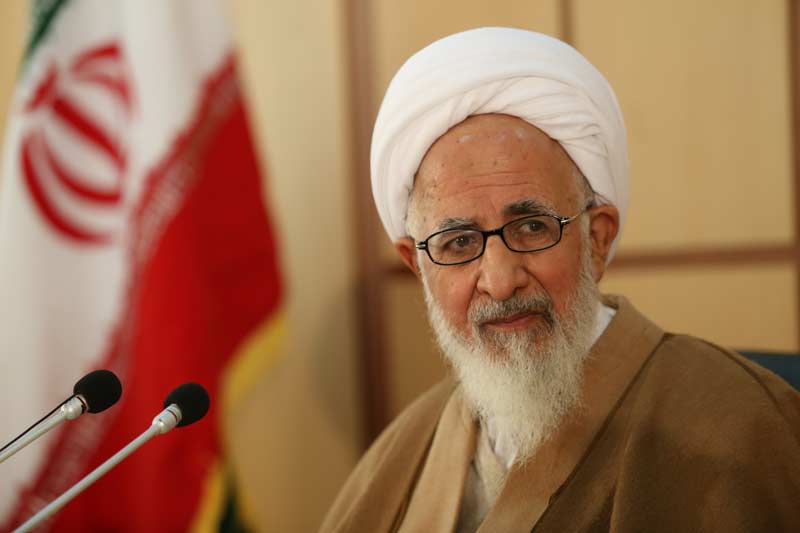


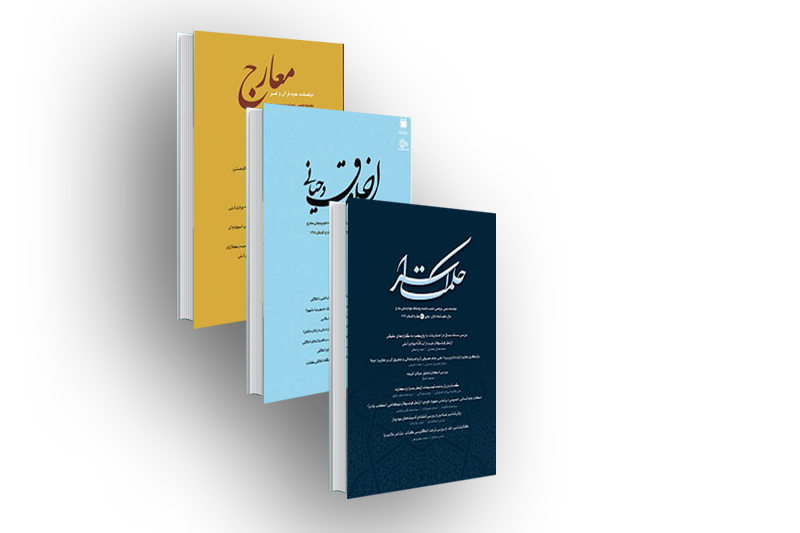


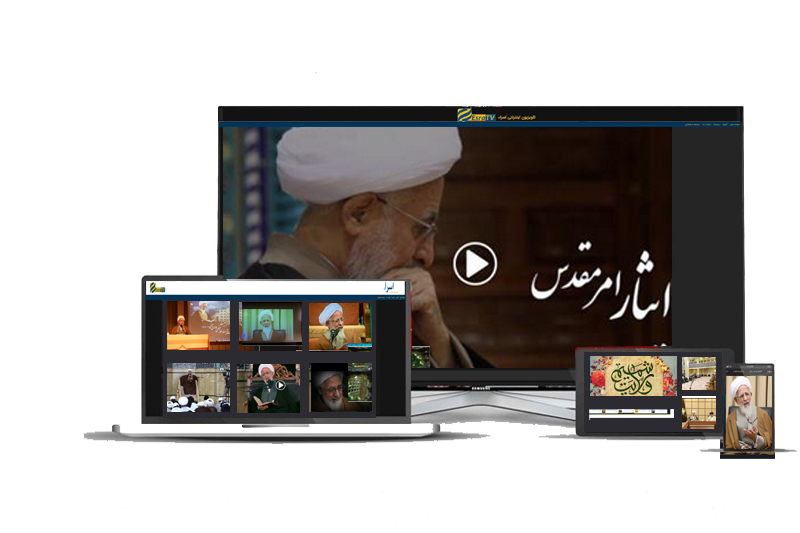
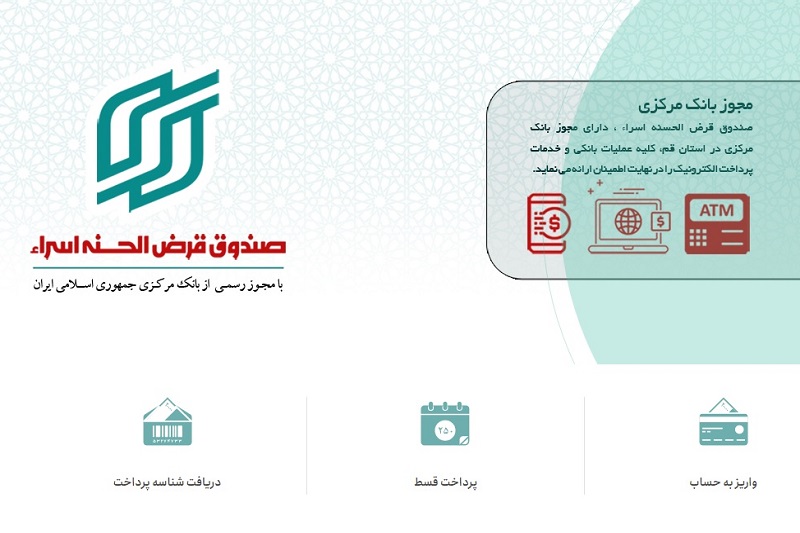
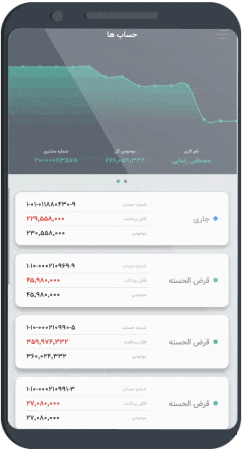
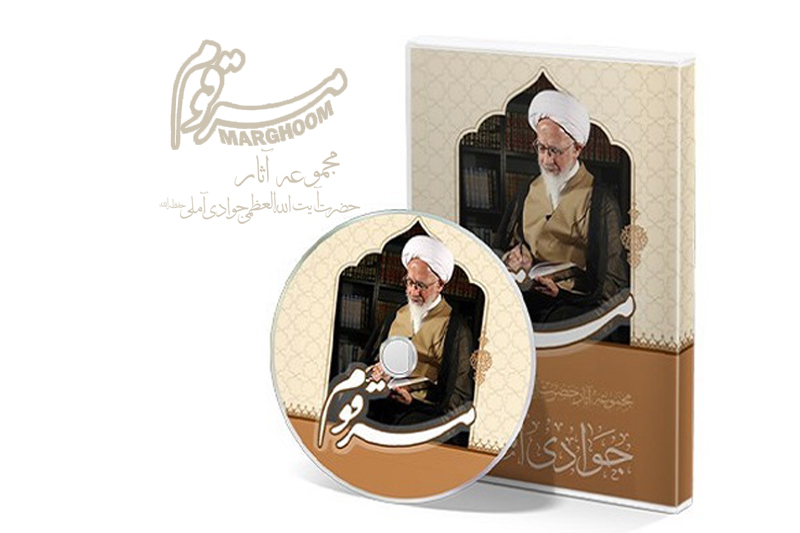
 Esra Publishing Center, the exclusive publisher of Ayatollah Javadi Amoli's works, started working in 1993; Among the missions and duties of the center are the production of written works with the desired and standard quality, fast and timely supply at the right price and supporting the products, providing easy, fast and low-cost access to the products for the domestic and foreign audiences, attending domestic and foreign international exhibitions, ….
Esra Publishing Center, the exclusive publisher of Ayatollah Javadi Amoli's works, started working in 1993; Among the missions and duties of the center are the production of written works with the desired and standard quality, fast and timely supply at the right price and supporting the products, providing easy, fast and low-cost access to the products for the domestic and foreign audiences, attending domestic and foreign international exhibitions, ….


